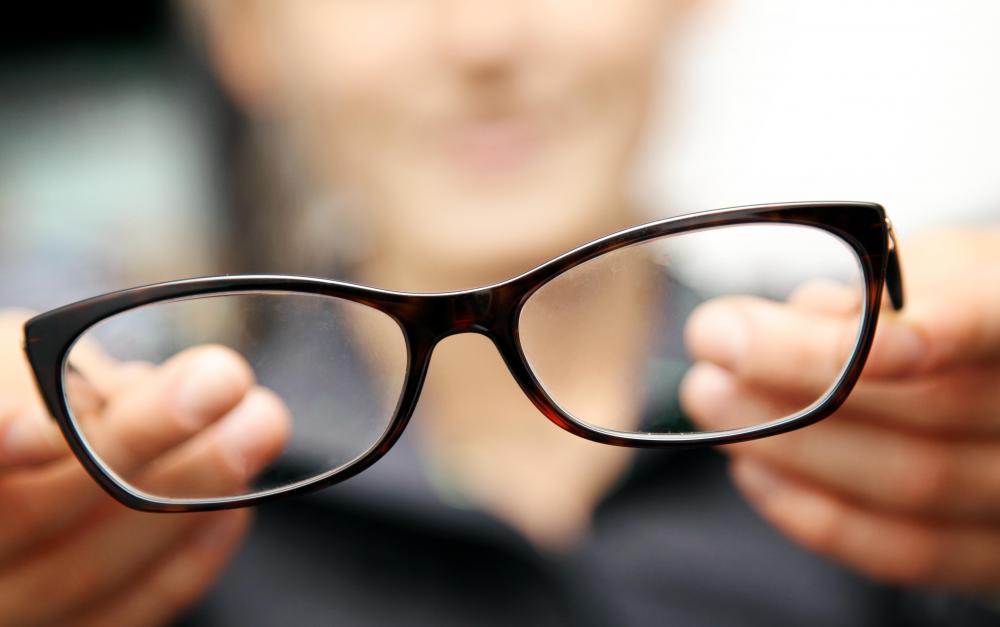At WiseGEEK, we're committed to delivering accurate, trustworthy information. Our expert-authored content is rigorously fact-checked and sourced from credible authorities. Discover how we uphold the highest standards in providing you with reliable knowledge.
How do I Become an Orthoptist?
An orthoptist is a type of eye doctor who works with ophthalmologists, more specialized eye doctors, to diagnose and treat different types of vision disorders. To become an orthoptist, a student should complete an undergraduate program in a science field at an accredited institution. Approximately two years of specialized training follows this before the candidate can take the test required to become certified as an orthoptist.
Orthoptists work with both children and adults, but a greater percentage of patients are children since vision problems are usually recognized and diagnosed in childhood. Orthoptists perform routine examinations of the eye area and note imbalances in the eye muscles. Several patients are diagnosed with amblyopia, a fancy word for lazy eye, or strabismus, which is cross-eyed vision. Orthoptists are skilled at quickly recognizing when a patient does not have normal binocular vision—in other words, when their eyes do not work together properly. Additionally, orthoptists treat stroke victims who have vision problems as a result of the stroke.

Orthoptists are responsible not only for diagnosing vision problems but for assessing treatment plan as well. Such plans often include exercising the eye muscles and covering one eye with a patch so the other one works harder. Other responsibilities of orthoptists include checking a patient for glasses and taking measurements for the surgeon to determine which procedure will best correct misaligned eyes. For those who wish to become an orthoptist, they will likely spend their lifetime pursuing jobs in health care careers and medical careers. Orthoptists usually work in hospitals, doctors’ offices, medical centers and clinics.

The training program to become an orthoptist includes both theoretical knowledge and practical experience. Time is spent both in the classroom learning the concepts and also at clinics or facilities, observing and aiding other orthoptists. This time is known as a fellowship, during which the person wishing to become an orthoptist becomes trained in helping both child and adult ophthalmology patients. Classroom learning focuses on topics such as ocular anatomy and physiology, refractometry, treatment of visual disorders, clinical research skills, systemic diseases, diagnostic testing, pharmacology and medical writing.

Health care jobs are expected to grow in the coming years, and orthoptists are expected to be in greater demand. Those who complete the training program can apply to ophthalmologists for employment. The average annual salary for an orthoptist is $45,000-$50,000 US Dollars (USD). Most orthoptists work 40 hours per week, although occasional evening and weekend hours are required.
AS FEATURED ON:
AS FEATURED ON:
















Discussion Comments
An orthoptist has quite a choice of areas to work in. She could work with an ophthalmologist who treats mainly adults who need cataract surgery or have eye diseases.
If she had a lot of patience and liked children, she could work in a clinic where children are brought to be treated for muscle and other types of problems with their eyes. This work is very important as the eyes are so important for learning. You would also have to monitor any exercise the child must do.
Another place an orthoptist could work is in a vision clinic where vision is tested and eye glasses or contacts are fitted. Good people skills would be needed here.
There are some varied choices here, if a person wants to change jobs.
When I go for checkups to my ophthalmologist,I've always noticed that there are two assistants, who do some of the measuring and testing. Later the ophthalmologist comes in and spends a fairly short amount of time with me.
I didn't know these two assistants had a title - orthopists. They seem to be trained to do a lot of the preliminary work. They are well trained and get a lot of hands-on practice before they get a job. I think that it would be a good career to get into.
@sunnySkys - Good point. I think this job would only be good for someone who likes children though. As the article said, treating children is a big part of the job.
I also think this job would be a good one to train for. Sounds like there are a lot of different options as far as places to work. If you got bored working in a doctors office, you could go work in a hospital!
Interesting. I've never heard of this particular career, but it sounds like a great option for someone who doesn't want to go for years of school and become and ophthalmologist.
As the article said, it's fairly easy to find a job in the health care field these days. Plus, at the salary orthoptists get paid, I can see why a clinic might hire a few of them to work under one ophthalmologist just to be economical.
Post your comments